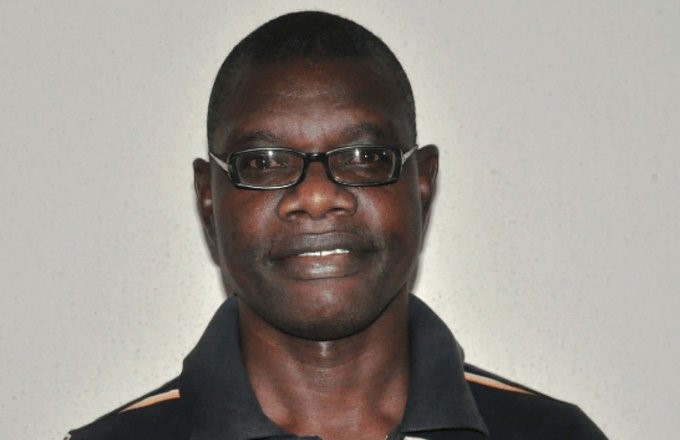By Godwin Onyeacholem
It’s just as pathetic that the presidency, the real custodians of the renewed hope agenda of the administration, isn’t embarrassed enough to lend its voice by demanding immediate investigation into how customs officials are allegedly adding abetting cross-border smugglers to their statutory duties of revenue collection, trade facilitation and border policing.
This is real. Let no one begin to think that it’s not a matter that calls for serious concern at this time.
That the continued repression of the critical press and voices of truth seeking to hold different shades of the country’s power holders accountable has continued under the Bola Tinubu administration is not in doubt. For a man well-touted as a progressive and whose place as a prominent agitator on the Nigerian pro-democracy camp of the 80s and 90s is fully documented, an onslaught of intimidation and attacks on journalists and whistleblowers under his nose must be seen as an unsettling paradox.
Although reports of press attacks in various dimensions pour in now and then, two separate cases involving Fisayo Soyombo, investigative journalist and founder of Foundation for Investigative Journalism (FIJ), and Segun Olatunji, editor of First News, have continued to make grim headlines and spark a sense of foreboding. Both journalists are victims of state repression. While not discounting the administration’s assurances to play by the rules, truth is: it’s déjà vu all over again! There’s a sinking feeling as one visualizes the coming days.
Going by reports from Bukky Shonibare, board chair of FIJ, the police is looking for Soyombo. Shonibare was invited by the police and questions were asked about the work FIJ does. In the end, the police wanted nothing than for her to just produce Soyombo who had, in recent times and in his usual unbridled spirits, done a series of derring-do exposé chronicling acts of stomach-churning corruption perpetrated down the line by senior officials of the Nigerian Customs Service.

Soyombo’s customs stories left many citizens horrified by their compelling disclosures of a supposedly independent customs service that should be arresting smugglers and warding off dangerous border activities but, as seen in the reports, now said to be collaborating with smugglers to undermine the economy and security of the country. Names of customs officials, smugglers, and their locations were mentioned in the reports. The faces of the main actors were captured.
For several weeks the stories ran on the FIJ website. They also made the rounds on social media where they were gleefully shared by citizens gripped by a mixture of bemusement and fury. As all of that went on, the customs service shut their eyes and ears against the scandal. While many were on the lookout for an immediate robust response, not a whimper issued from them. Nor did the Ministry of Finance, the customs service’s oversight institution, comment on the sordid revelations by the reporter.
It’s just as pathetic that the presidency, the real custodians of the renewed hope agenda of the administration, isn’t embarrassed enough to lend its voice by demanding immediate investigation into how customs officials are allegedly adding abetting cross-border smugglers to their statutory duties of revenue collection, trade facilitation and border policing.
This is the best opportunity yet for President Tinubu to prove that his commitment to the fight against corruption is no fluke. Tinubu should direct the police, and other relevant agencies, to go after the customs officials and the smugglers identified in Soyombo’s reports, not the reporter. He should even be thoroughly gutted that this is happening under his watch.
In the middle of last month, shortly before the police hunt for Soyombo came to light, a band of armed men, including two who wore military-style uniform, arrived in two vans at the home of Olatunji in Alagbado, a suburb of Lagos. They identified themselves as soldiers from the Nigerian Army who were there to arrest him. They seized his phone, handcuffed him like a common criminal, pushed him into one of the vans and whisked him off to Abuja.
He was blindfolded on the flight to Abuja, kept incommunicado and tortured in a detention facility. He regained freedom two weeks after, following sustained public campaigns for his release by his employers, Nigerian Union of Journalists (NUJ), International Press Institute (IPI), Nigerian Guild of Editors (NGE), Committee to Protect Journalists (CPJ) and other concerned organizations and individuals.
In slamming Olatunji’s arrest and affirming the belief that it evoked unpleasant memories of the past, the CPJ Africa Programme Head, Angela Quintal, said in New York: “The seizure of journalists from their homes is behaviour reminiscent of an era in Nigerian history when the military ran the country and has no place in a modern democracy.” At a press conference organized by IPI, NUJ and NGE after his release, the journalist said they were asking about certain stories published by his paper and accused him of terrorism. This is pure harassment and intimidation of a journalist as a strategy to stop him from doing his work.
Neither Soyombo nor Olatunji has committed any crime to deserve an underground police hunt, or a humiliating seizure and detention by armed soldiers. Nigerian journalists who insist on putting out the truth in the public are often harassed and intimidated as a strategy to stop them from doing their work. If it was a familiar occurrence in past governments, President Tinubu must not condone it, not only because he is a media owner, but also because of his background of progressivism and claim to being a genuine democrat.
Just as journalists deserve full protection to help them do their work effectively, so do public and private sector whistleblowers who take action to influence the environment around them. Journalists and whistleblowers are inseparable because of their dedication to holding power to account and working towards the same public good by bringing up the facts. But the threats both groups face under this government must not be allowed to continue.
In fact, these threats and harassment must stop now if the country is interested in building the right democratic culture. Because in the end, journalists and whistleblowers are the real pillars of democracy.
Onyeacholem writes from Abuja. He can be reached via gonyeacholem@gmail.com

